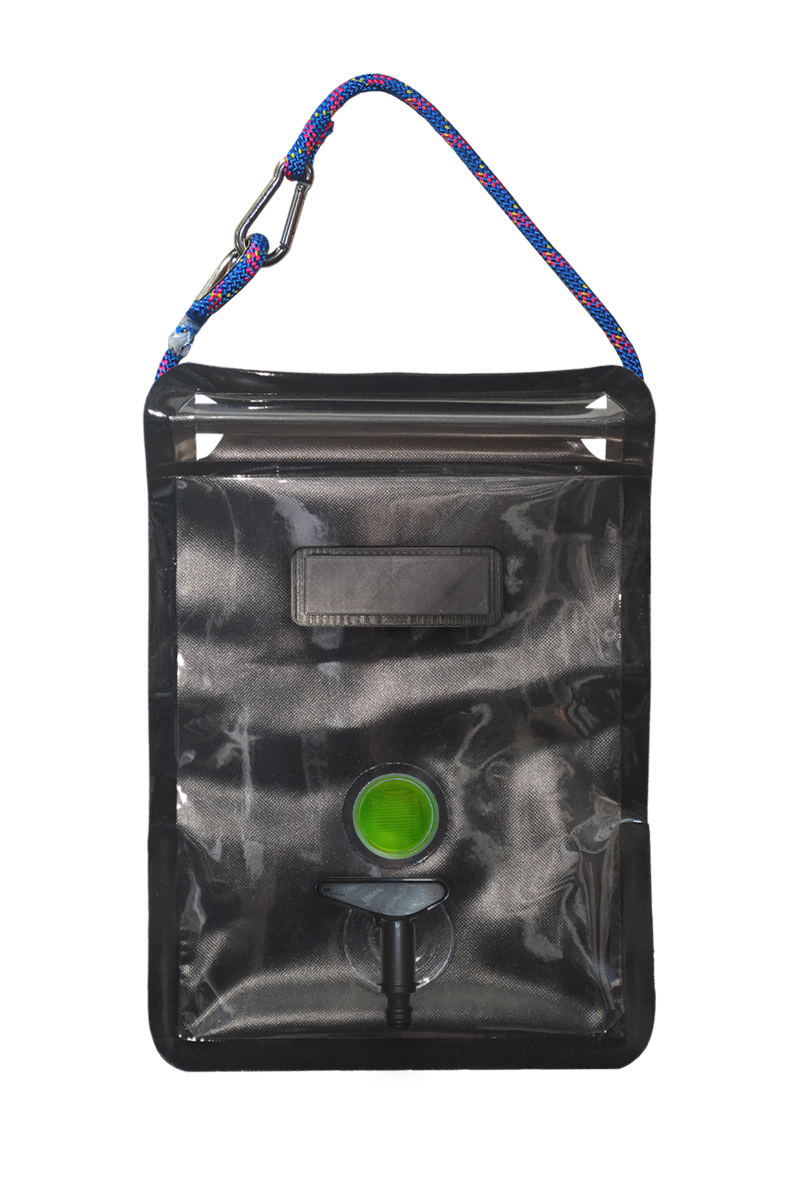

THE SOLAR BAG
Is it possible to address the problem of economic water scarcity in rural Ghana?
While pursuing my BA in Product Design @ Politecnico di Milano in 2016, I spent my last year researching the concept of Economic Water Scarcity, a phenomenon caused by a “* [...] Lack of investment in the water infrastructure or insufficient human capacity to satisfy the demand of water in areas where the population cannot afford to use an adequate source of water”.
This research resolved into investigating a particular area of Ghana – where I had a connection – to see whether the local community would have been interested in a tool assembled on-site to help them check the safety of drinking water. The product has only been tested in a lab, due to a lack of fundings. It was nevertheless a priceless journey.
The result of my research was ‘The Solar Bag’, a device that allows its users to connect a significant need, Safe Water to an enormous resource, The Sun. The solar Bag is designed to gather, transport, and use water in rural Ghana. This low-budget Bag interacts with its surroundings, and all the parts are easily replaceable in case of loss or damage.
The Bag helps in two stages of the water journey: collection and usage.
The main objects used to collect water from wells in rural Ghana are half-open jerry cans and buckets, which can leak on the way home and aren’t easy to fill up once down the well. Stones or bricks can be used to fill a pocket situated on the Bag’s back. These will act as weights, facilitating a vertical entrance of the Bag on the water surface. The 3D printed cap has an inside flap to keep the two sides of the Bag away from each other, allowing the air to come out quickly.
Once the water is collected and brought back home, it’s time to deal with waterborne bacteria and viruses.
The Bag features two films made of polyurethane (hypoallergenic and durable material): the lower is black and attracts heat; the upper is transparent and retains the heat letting sunlight in. Thanks to these materials, we can use the process of – pasteurisation to obtain bacteria-free water to drink.
The Solar Bag is placed on a reflecting surface that can be a metal roof, a car shade or thin foil. Solar energy will bring the water temperature to 65°C: at this temperature, 99.9% of pathogen microbes will be deactivated. The user will have a visual confirmation of the finalisation of the process thanks to – wapi (Water Pasteurization Indicator), a device placed behind the transparent film. Wapi contains a vegetable wax that melts once the water reaches 60°C.
Melted wax equals safe water tro drink!
︎︎︎